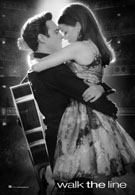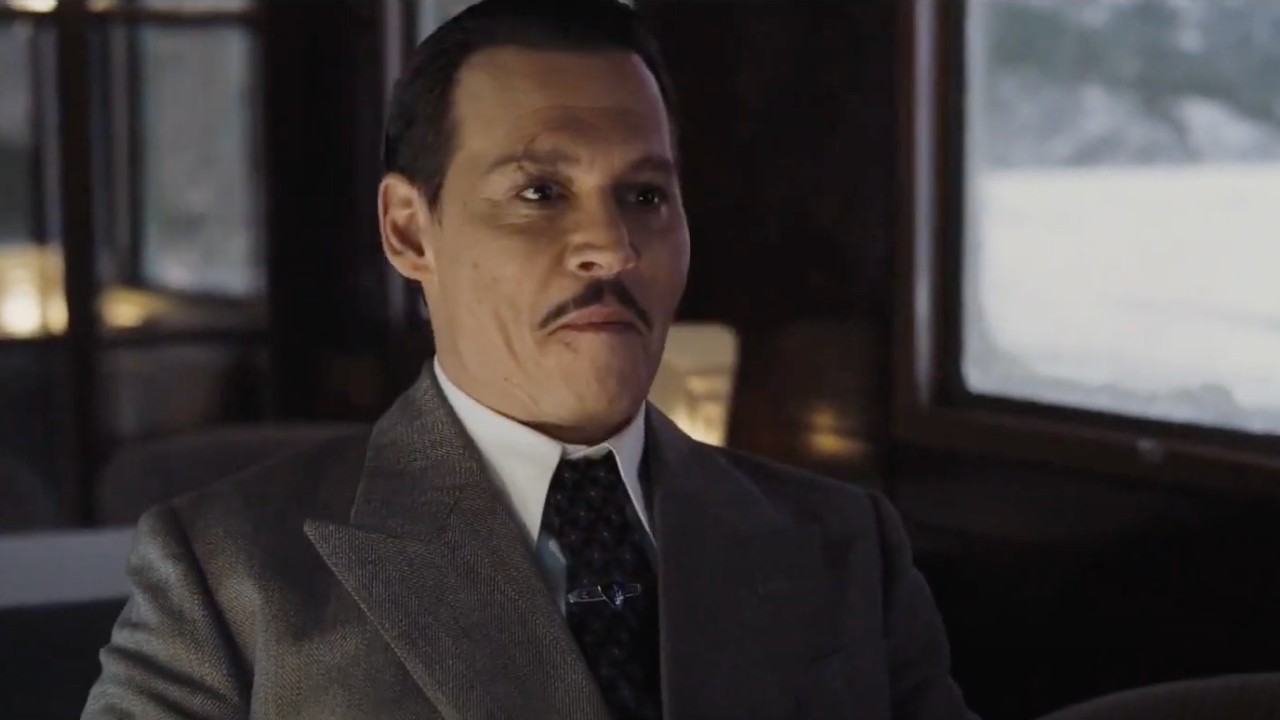He came up with his sound because he couldn't play any better than that (they'd play faster if they could); he came up with his look because he didn't have anything else to wear. That was Johnny Cash: too humble to take credit, but too talented to be ignored Cash burst onto the scene in 1955 playing alongside greats like Elvis Presley, Jerry Lee Lewis, and Roy Orbison with a style all his own.
Walk the Line is Cash's story and more. It captures Johnny's life from shortly before his first record up until his marriage to the woman he's spend the last 35 years of his life with, June Carter. Because of that, this isn't just a movie about Johnny Cash, this is both of their stories, his and June's.
Joaquin Phoenix isn't the most facially expressive actor, but that's perfect for the elusive Cash, a quiet figure with a piercing gaze and a deep, barrel-chested voice. Both he and Reese Witherspoon give legendary acting and singing performances as Cash and Carter; their transformation is astounding. Phoenix lowers his voice at least two octaves to not only talk like Cash, but sing like him as well. Unlike last year's musician biopic Ray, in which Jamie Foxx lip synched to pre-recorded Charles tunes, these actors are actually singing. Phoenix's voice is so good, his performance so dead on, that when a real Cash song is played over the movie's end credits, the difference between the two is indistinguishable.
What's amazing is that physically, neither Phoenix nor Witherspoon naturally bears even a superficial resemblance to their real life characters. Yet in the context of this film, somehow they look exactly like them. Joaquin takes a direct approach to Cash, copying his mannerisms, his speech patterns, his way of walking, of holding his guitar, his tendency to sing and talk out of the corner of his mouth. Yet there's more to his performance than expert mimicry. He brings the character to life slowly, at first he's distant and hard to understand. What's going on in his head? Director/Writer James Mangold fills the movie with quiet moments of anger and reflection, and Phoenix nails them with an uncanny fire blazing in his eyes. As the film develops Cash grows into a living breathing person, tortured and awkward, romantic and rebellious. You'll get caught up in it.
"Your fans are church-going folk!" exclaims Cash's manager towards the end of the film. But they're not, and a big part of Cash's journey in Walk the Line is accepting that. His music came from somewhere darker, a place inside himself that he tries to ignore in order to please his unpleasable father. When Cash dismisses his accomplishments as accident or happenstance, it's not because he's humble, but because he's worried about what his music and his style says about him. "We're all goin to hell for the songs we sing," says Jerry Lee Lewis during a car ride in half-jest. We're never sure if Johnny actually believes in God, but his struggle in Walk the Line is about embracing who he really is, whether or not it sends him straight to hell.
In the end what lifts Walk the Line beyond your average biopic is the romance between Cash and Carter, which isn't really a romance at all but a deep, genuine friendship. The heart of the movie is their relationship, through which the best and worst of Johnny Cash is distilled as you start to understand Johnny, and care. Their long friendship, and Johnny's desperate, pawing pursuit of her culminates in one of the most touching, crowd pleasing finales you're likely to see this year. At my screening there wasn't a dry eye in the house… not even mine. Unlike Ray, this isn't about a man finding artistic or financial success, but finding someone to make music with.
Co-writers Mangold and Gill Dennis have found the heart of Johnny Cash's life in their screenplay, which they based on biographies written by Cash himself. Filled with Cash's music and full of rousing life, Walk the Line is a fantastic success. You'll clap, you'll cheer, you'll cry and then you'll run out and buy every scrap of Johnny Cash music you can find. This is a special film, more than a biopic it's an emotional masterpiece, and easily one of the year's best pics.











